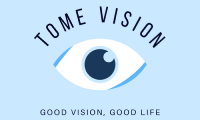Age-Related Macular Degeneration: What You Need to Know
Age-related macular degeneration (AMD) is a common eye condition that affects millions of people worldwide, particularly those aged 50 and above. It is the leading cause of vision loss and blindness in older adults. Understanding the disease, its risk factors, and available treatments is crucial to maintaining good eye health. This article will provide you with valuable information about AMD, so you can take necessary precautions and seek appropriate medical attention when needed.
Types and Symptoms
AMD can be divided into two main types: dry AMD and wet AMD. 85-90% of cases are classified as dry AMD, which occurs due to the aging and thinning of macular tissue. This gradual deterioration of the macula, a small but essential part of the retina responsible for central vision, can lead to blurred vision, difficulty recognizing faces or reading fine print, and the appearance of dark or empty areas in the visual field. Dry AMD typically progresses slowly and may affect one or both eyes.
The less common form, wet AMD, is generally more severe and can cause rapid, significant vision loss. Wet AMD occurs when abnormal blood vessels grow under the macula and leak fluid and blood, leading to distorted straight lines and decreased central vision. Prompt medical intervention is necessary in wet AMD cases to prevent further damage.
Risk Factors
While the exact cause of AMD is still unknown, several risk factors have been identified. Age is the most significant risk factor, as AMD primarily affects individuals over 50, with the risk increasing with each passing decade. Other common risk factors include smoking, family history of AMD, obesity, hypertension, high cholesterol, cardiovascular disease, and prolonged sun exposure without proper eye protection.
Preventive Measures
Although there is no foolproof way to prevent AMD, you can take certain measures to lower your risk and slow its progression:
1. Quit smoking: Smoking significantly increases the risk of AMD, so quitting smoking is a crucial step towards maintaining healthy eyes.
2. Healthy diet: Consuming a well-balanced diet rich in fruits, vegetables, and fish high in omega-3 fatty acids can improve eye health. Antioxidants found in colorful fruits and vegetables, such as leafy greens, carrots, and berries, are especially beneficial.
3. Exercise regularly: Engaging in regular physical activity, such as walking, swimming, or cycling, helps maintain good cardiovascular health and is linked to a reduced risk of AMD.
4. Wear sunglasses: Protecting your eyes from harmful ultraviolet (UV) rays by wearing quality sunglasses can prevent the development of AMD.
Treatment Options
While there is no cure for AMD, early detection and appropriate treatment can help slow its progression and preserve vision. Treatment options include:
1. Anti-vascular endothelial growth factor (anti-VEGF) injections: These drugs block the growth of abnormal blood vessels in wet AMD, reducing leakage and preventing further damage.
2. Photodynamic therapy: This treatment involves injecting a light-activated drug into the bloodstream, which is then activated by laser treatment to selectively destroy abnormal blood vessels.
3. Low vision aids: Devices such as magnifying glasses, telescopic lenses, and large-print books can help individuals with AMD make the most of their remaining vision.
Regular eye exams are crucial, especially if you are over 50 or have risk factors associated with AMD. Early detection allows for timely intervention, which can slow down vision loss and improve the quality of life for those affected by this disease.
In conclusion, age-related macular degeneration is a common eye condition that primarily affects older adults. By understanding its types, symptoms, risk factors, and available treatments, you can take proactive steps to maintain healthy eyes and reduce the risk of vision loss. Remember to quit smoking, consume a nutritious diet, exercise regularly, and protect your eyes from the sun’s harmful rays.
